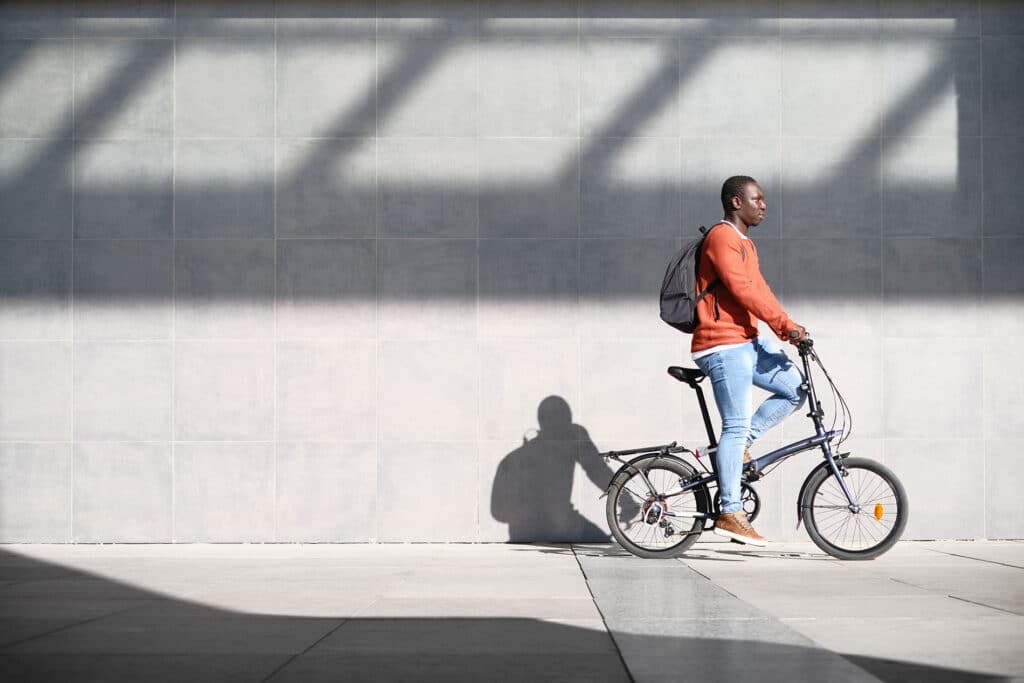George Mason University finds ways to increase biking with goals of sustainability and wellness in mind.
George Mason University (Mason) is relatively young, in fact we are celebrating our 50th anniversary as an independent university in 2022. With around 39,000 students and more than 7,000 faculty and staff, Mason is the largest public research university in Virginia. Although young, Mason’s reach is global, and we have students from 50 states and 130 countries. Mason’s culture is collaborative and collegial, and it shows in most of what we do, including biking.
Bicycling has been an integral component of Mason’s Transportation Demand Management (TDM) program, overseen by Mason’s Parking and Transportation department. Mason was first recognized as a Bicycle Friendly University by the League of American Bicyclists in 2011, again in 2015, and most recently in 2019 where it earned a Silver level status. As well, there is a strong bike culture in the Washington, D.C. area on which to build.
Mason had a faculty/staff Bike Commuter Choice program in place for several years going back to 2014, when the IRS finally allowed bicycling commuting as an approved pre-tax benefit. Generally, it supported cyclists by providing shower access, two complimentary parking passes, and a $20 certificate redeemable at area bike shops if a cyclist rode to work a minimum of eight times per month. It was a manual, paper-based system, but it worked. We partnered with Mason Recreation to provide the shower access at campus fitness facilities and the program fit into the then-current IRS guidelines, which provided a tax-free benefit of $240 per year to support cycling to work. The Parking and Transportation department funded and administered the program.
Since it was a completely voluntary program, people “cycled” in and out of participation. Some rode every month; others chose to ride only the during the more temperate seasons and commuted by other means during colder winter months and the Washington area’s hot and humid summers. The program also had its limitations. The IRS forbade employees from participating in both Bike Commuter Choice and our other commuter-support program, Commonwealth Commuter Choice, which provided tax-free subsidies to full-time employees who used public transportation or vanpool to commute. The bicycle commuting benefit again was limited to $20 per month, much less than the full federal pre-tax transit Commuter Choice benefit that was $130 monthly when the biking benefit started and is currently at $280 per month. The gift certificates were also paper-based, creating some challenges in administration as they expired each year and unused certificates had to be replaced.
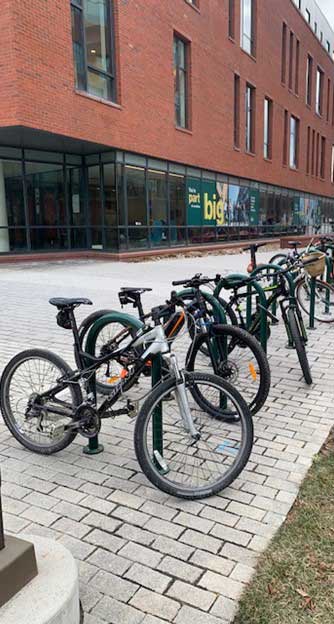
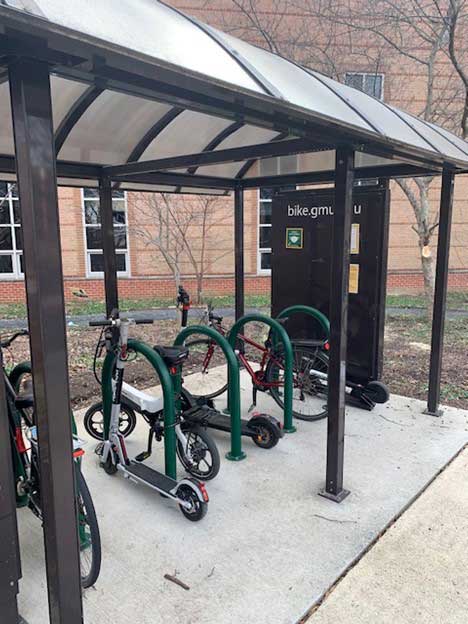
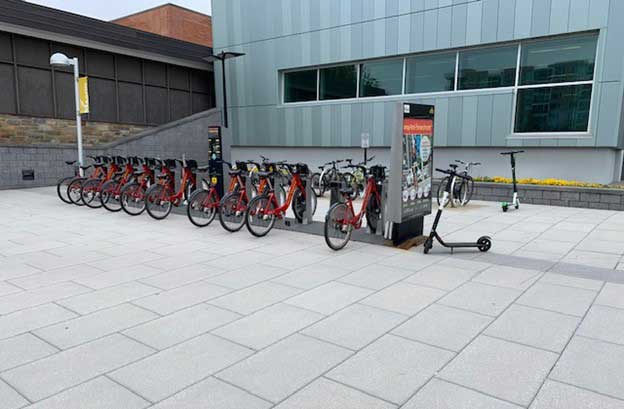
However, the real challenge came in December 2017 when Congress changed the nation’s tax policy, and the bike commuter benefit was no longer tax-free. Once that happened, we could no longer provide the gift certificate because we had no way to tax it in our department. Numbers fell from an average participation of 26 in 2017 to just under 19 participants in 2018. Not ones to give up, we reached out to the cyclists who had been participating in the program, shared the news, and told them we were going to design a new program and could use their help.
As you can imagine, our program participants are avid cyclists. They became the perfect partners with whom to go to the drawing board and design a new program from scratch. We also reached out to our colleagues in Human Resources and Payroll to solve that pesky taxability issue. This collaboration ensured that whatever we designed, they could help us to correctly implement.
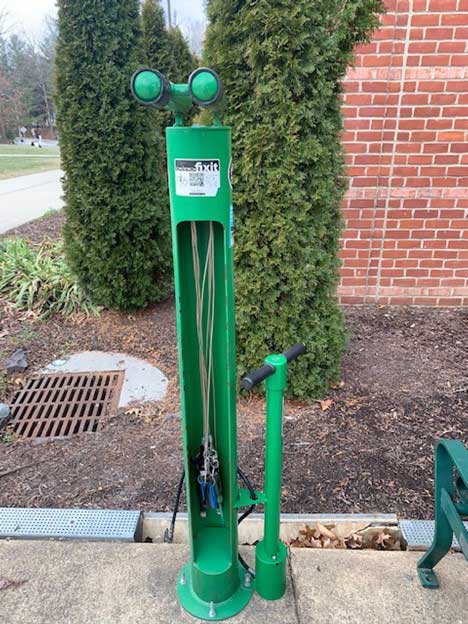
We started with focus groups of cyclists and asked what was important to them. What motivated them to bike to work? They shared ideas and we incorporated them into the new program. It took nearly a year of drafting and redrafting as we honed the benefits and the parameters of the new and improved Bike Commuter Choice program. We came at if from different angles, and in the end, we prioritized two questions in designing the program: how do we incentivize people to bike to work, and how do we have them document when they rode, but make it administratively simple?
We wanted to trust our participants and be flexible. We tried to anticipate questions but weren’t afraid to not have all the answers at the start. Thinking beyond the boxes we created was encouraged as we decided on what should be included, such as counting short rides less than a mile for employees who lived in an on-campus faculty/staff housing community or giving credit to those who used pedal assist electric bikes. As we created a new program out of the ashes of the old program, we didn’t feel bound by old restrictions. Getting back to our two priorities of finding ways to incentivize employees to commute by bike and to make the program as simple as possible to administer remained at the forefront of our thought process.
In January 2019, we unveiled the new faculty/staff Bike Commuter Choice Program. It offered three tiers of financial support tied to how frequently a faculty or staff member rode. We included all faculty and staff—full-time and part-time. We tried to build a program that supported all cyclists, whether riding from neighborhoods adjoining campus or those who were riding from other jurisdictions and everyone in between. The dollar amounts and timing (now quarterly) had been set by cyclists themselves:
- Tier 1: 15-23 rides per quarter, $50 and six complimentary parking passes
- Tier 2: 24-35 rides per quarter, $90 and nine complimentary parking passes
Tier 3: 36 or more rides per quarter, $140 and 12 complimentary parking passes
We also provided funds for an annual bike check – $100 if you rode at Tier 2 for the year and $200 if your rode at Tier 3 all year. A quarterly distance bonus, another cyclist suggestion, was included if someone rode more than 10 miles each way to work—Tier 1: $15; Tier 2: $30; and Tier 3: $45.
The complimentary shower access was retained through our continued partnership with Mason Recreation. They allowed free access to participants from 6 a.m.to 1 p.m. Shower access has recently expanded as new buildings at Mason frequently include showers.
The financial support and the value of the parking passes are all taxable. Program participants electronically submit their form once per quarter, and Parking and Transportation compiles their efforts into an Excel spreadsheet which is then submitted to Human Resources and Payroll. They process the amounts and put the funds in participants’ paychecks,accounting for the value of parking passes participants have requested in their W-2 for income received. The Parking & Transportation fund is then charged back by Human Resources and Payroll for the amount the employee earned that quarter.
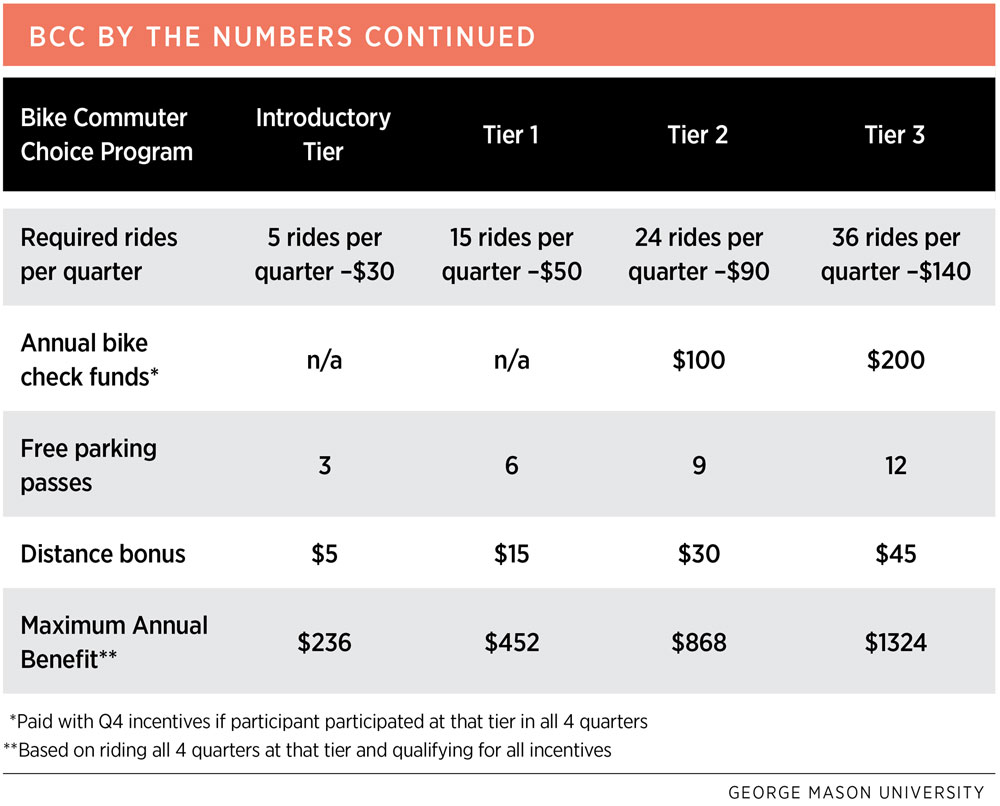
2019, the first year implementing the new program, saw an increase from an average of just under 19 participants in 2018 to just over 34. We had one cyclist tell us the support was enough to cause her to turn in her parking pass and commute exclusively by bike. In that same year, 19 of the participants qualified for a bike check bonus having ridden at Tier 2 or Tier 3 all year.
Of course, COVID-19 dramatically impacted the program as most of our faculty and staff were teleworking in 2020, but we’re roaring back. In 2021, our participation has climbed each quarter from seven in Quarter 1 to 14 in Quarter 2, to 29 in Quarter 3 with six new riders.
The program continues to evolve as we encourage participants to share their ideas improvements. One suggestion led us to introduce a fourth tier in 2021 to encourage people as they were returning to work to consider biking as an option. Just five rides are needed per quarter to achieve this new introductory tier level and they receive financial support of $30 and three complimentary parking passes. Cyclists also asked for more flexibility in the type of complimentary parking they received so we provide surface lot passes valued at $8 each and parking deck validations valued at $15 each, with each pass they request being taxable.
We have recently fielded a request to consider an alternate way of calculating eligibility for the bike check bonus. Currently, it is tied to achieving the same level of cycling for four quarters. At our next Bike Advisory Committee meeting this spring, which is made up of cyclists and university biking stakeholders, we’ll discuss whether it also can be tied to the number of times someone rides for the year. This will help those riders who are more inclined to ride daily in the warm months and not penalize them for not riding in the inclement months.
Our cycling community is so enthusiastic that they asked us to track those quarters when they don’t qualify for any of the tiers. They just want to share that they are cycling even two or three times a quarter.
If you’re considering how to incentivize your colleagues to bike, we’d encourage you to:
- Consider the possibilities.
- Keep it simple.
- Be flexible.
- Plan to adapt as everyone works with the new program.
- Roll with the unexpected.
Folks had questions we had never even thought of, but we found the answers. COVID-19 had a devastating impact on the program, but because it is administered internally, we could all “ride it out” until the cyclists returned. That adaptation included keeping the funding levels the same for each tier during COVID but reducing the number of rides required for Tiers 1-3. We did reduce the number of complimentary parking passes since many are still teleworking to some degree.
In short, the program at Mason is organic; we encourage feedback and want the participants to feel that they have a stake in not just the benefits they receive but in the opportunity that they must enhance, further develop, and evolve the program to better fit their needs. As George Mason is committed to reducing its carbon footprint as part of a Campus Sustainability Plan, to reducing parking demand as part of its new Master Plan, and to prioritizing well-being, Parking and Transportation plans to continue to grow the program and encourage more of our Mason colleagues to discover the joy and well-being that cycling to work can bring.
Click here for more information about Mason’s Bike Commuter Choice Program, please visit.

